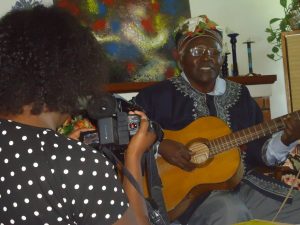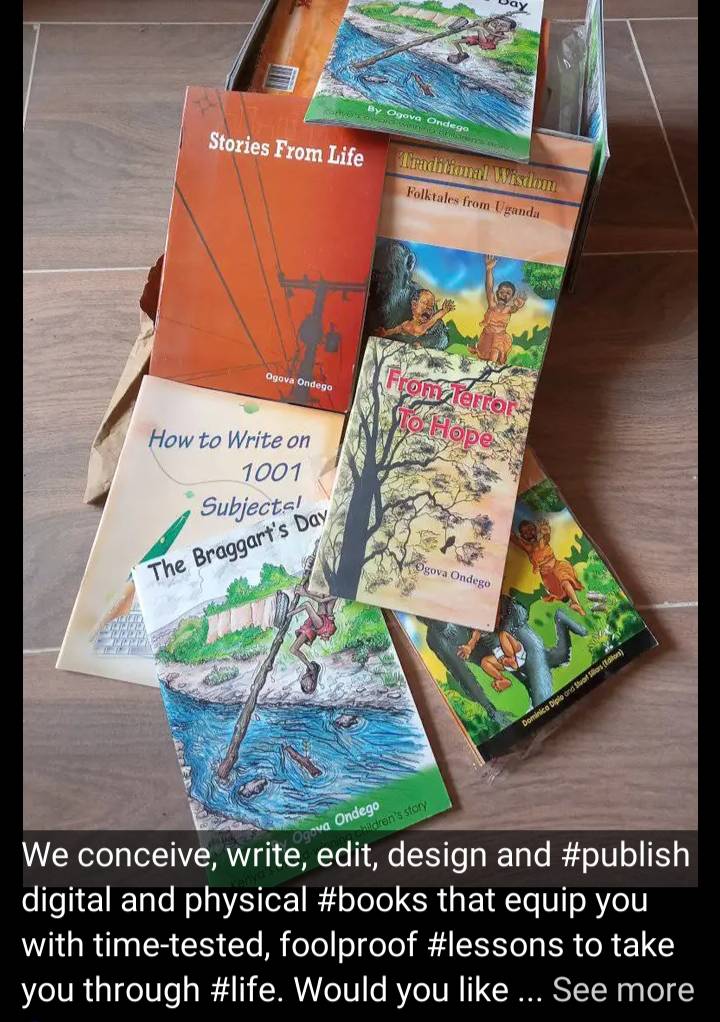By Bethsheba Achitsa
Published May 1, 2009
 Writer David Gian Mailu is organising a 500-kilometre walk from Mombasa to Nairobi in mid 2009 to promote a reading culture and publication of books in local languages in Kenya. BETHSHEBA ACHITSA reports.
Writer David Gian Mailu is organising a 500-kilometre walk from Mombasa to Nairobi in mid 2009 to promote a reading culture and publication of books in local languages in Kenya. BETHSHEBA ACHITSA reports.
Though the book was the tool that the colonisers used to tame Africa and damage African cultures, Dr Mailu states that it is the same book that should be used to decolonize and reclaim Africa’s submerged cultural values. Thus he asks: where is the book? Who is reading that book? What is the message in the book and who is publishing that book?
Mailu, popularly referred to as Father of Popular Literature in Kenya, faults the education system for failing to instill a reading culture in students, something he says is leading the nation into developing out-of-class illiteracy. This is so because general reading stops as soon as one gets out of school and the whole nation seems to be reading in order to pass exams : primary school exam, high school exam, and college exam. Outside that bracket many hardly ever open a book to read.
The walk is set to be flagged off at Fort Jesus in Mombasa and end at Uhuru Gardens in Nairobi; reading of poems and publishing industry discussion in Kenya will form a major part of the entire walk. At Fort Jesus, a poem commemorating the atrocities of slave trade that took place at this venue will be read. This, according to Dr Maillu, should kick-start the yearly commemoration of the “atrocities that should never be kept out of people’s mind”.
All along the road from Mombasa to Nairobi will be ‘reading tents’. And because one cannot promote a product that does not exist, these reading tents will act as book-promotion and selling points. Book-value publicity leaflets will also be distributed at the tent-reading stations as other ways of promoting the reading culture.
RELATED: Author of Traditional Wisdom from Contemporary Africa Comes to Nairobi
“While the Kenyan publishing industry subsists, it is purely commercial, focusing on publishing for the school market because that is where the money is. Publishing for general reading and cultural development is miserably poor and shameful,” Maillu says. “This event will therefore also campaign for the general publishing with major emphasis laid on publications in African vernaculars.”
One might wonder why Mailu is interested in vernacular publications; to him the education system seems to be for the elite and not catering for everyone. Publishing in vernacular will ensure the development of the nation because the foundation of its cultures is hidden in mother tongue.
The writer who has publications in Kikamba says that reading does not harm anyone. He recommends everyone to read in order to develop the nation.
“Education is for anyone and everyone contrary to the sentiments that education is a field where many are called but only a few are chosen,” Maillu says.
And for anyone who says that Africans do not read; Dr Mailu has a stream of questions to him or her: “What reading material is there, and what is its cost?”
As the light of oral tradition seems to be fading away, the darkness of cultural disorientation and confusion is taking centre stage. The book is the only tool that can help the nation achieve successful and meaningful cultural transition.
RELATED: How Green Spaces Can Prevent Urban Centres from Turning into Concrete Jungles
Dr Maillu appeals to the government to ‘conduct an aggressive national reading campaign because a good nation is made out of well-trained minds founded on people’s cultural roots.’
As a professional writer, Dr Mailu says, he is looking forward to partnering with any one else who believes that the book is the only way of developing the nation in conducting national workshops on publishing particularly in local languages.






